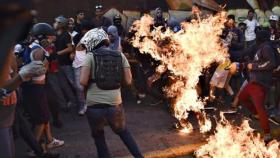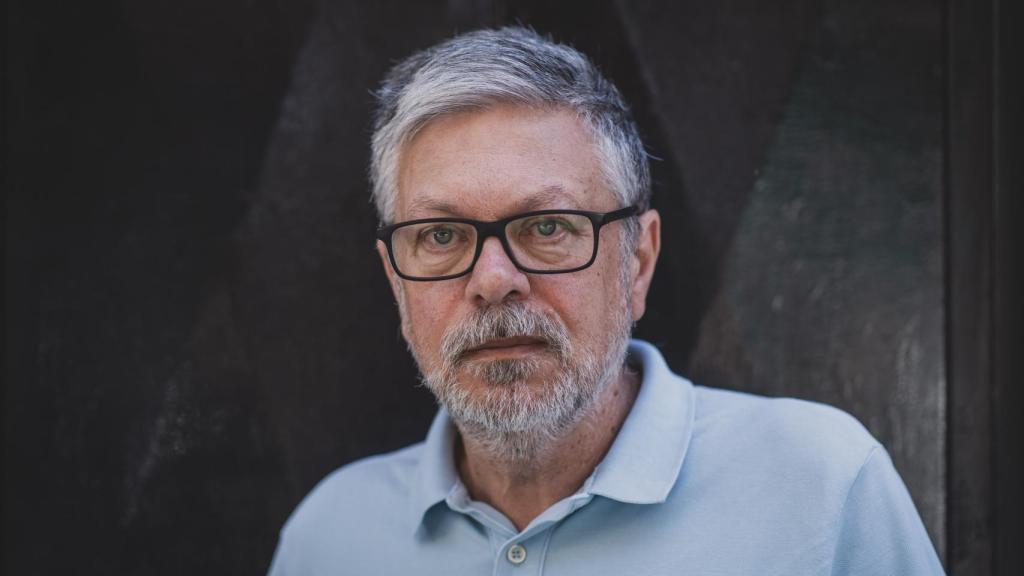
Mikhail Shishkin: "Russia is ready for a new tsar, but Prigozhin was not ready for a new tsar".
This successful Russian novelist wrote a book to explain Putin's Russia to Europeans. His bad omens came true, and they get worse for the future.
11 June, 2024 02:29Mikhail Shishkin (Soviet Union, 1961) rests a hand on My Russia (Impedimenta, 2024), at last in Spanish. The author asks in precarious English, "Do you like the cover?". The flap is dark, cubist-inspired, with wolves with sharp fangs and watchful eyes between the barbed wire. It is beautiful, in its own way. "I don't like it." Why? "That's not my Russia". So Shishkin's Russia is another, but which one?
What is it?
Shishkin was born in an amazing year for the Soviets. First they sent a man into space. Then they erected the Berlin Wall. Isn't that paradoxical? His father was Russian and fought in World War II. His mother was Ukrainian and a school principal. They died before the husband's homeland crushed the wife's homeland, but in time for the former to devour itself. In the 1990s, Shishkin believed that democracy opened a path to his Russia. The dream of Russian Europeans was short-lived. Shishkin eventually left the other Russia and moved to Switzerland. He took his solid ground - a language, a literature - with him, and has only a handful of artistic accolades left to collect.
In 2019, Shiskin wrote this essay - a history of his country and his family - full of bad omens. And it's strange: it seems written in 2024. What doesn't surprise him is our gesture of surprise. After all, he argues, whether under Gorbachev or Putin, we Westerners have always seen the Russia we wanted to see.

What does it feel like to read a forbidden book? My generation doesn't know that experience.
What does it feel like to read a banned book?
I like your question. What does it feel like? When I was 16, my life's dream was to travel the world and become a writer. But there comes a time when you realise that this is impossible. You are born a slave behind barbed wire. Nobody is going to let you cross it. Nobody will publish your books if you don't sing glories to the Soviet Union. You realise that you are an enemy of your state, of your country. Your body belongs to the regime. It can do with you whatever it wants. For example, it can send you to the war in Afghanistan. The only space of freedom you have left is inside your skull. They can't get in there. You seek salvation by refusing to read the books they propose to you, by reading other literature. The most important thing in the world is to preserve your human dignity. The life and literature they propose humiliates you. The forbidden literature of Nabokov and Joyce was salvation, but the price you risked was prison. My elder brother, in the end, was imprisoned in Andropov's time. So you are faced with the most important choice: to keep your dignity or live in fear. It's the most important choice.
Is itequally liberating to write a forbidden book than to readit? [He gives himself a few seconds] Why do we write? It's a deviation from the norm. A normal person doesn't write. It's a disease, but it's a healthy disease: you can get to a very old age with it. When you are a child with lots of books and few friends, in the end you play at making books: you write. For as long as I've been aware of myself, I've been a writer. For me, to write or not to write has never been an issue. Another thing is that, if you want them to publish what you write, you have to become a conformist: you have to write something they like. But then you lose respect for yourself. I was clear from the beginning that I was going to write what I liked, not what someone else expected. As long as the Soviet Union existed, I didn't publish anything, anywhere. My first publication was in '93 and I received the award for the best debut of the year.
It was in its nature. It was in its nature.
I just don't know how to be any other way. I just don't know how to be any other way.
"I had hoped that Putin would not be such an idiot as to start a war that he could not win."
You decided to write My Russia in German, and I remembered the Romanians who try so hard to forget Russian, the Ukrainians whose mother tongue tastes like ashes... I have no intention of disowning my language. All my life I have had like a very firm ground under me: my language, my culture, my literature. Now, with this war, I really do feel emptiness underneath. This war has turned my language into a language of war criminals, a language of murderers. However, history already knows cases like this. It happened to Nazi Germany. The war criminals commit the crimes. It is not the language. My task or my mission, if you like, is to preserve the dignity of my language. Now I travel a lot and speak a lot in the world. Whenever I have the possibility to make a speech in Russian, I do it. My task is to prove that the Russian language does not belong to a dictator, but to world culture.
Why did you write this book in a foreign language? Because it is a book in a foreign language?
Because it is a non-fiction book. It is not a novel. The fiction, the artistic project, will always be in my language. For me, to work with language is to write incorrectly. If you write correctly, it is no longer art. It's like a manual on how to write correctly in Russian. The art of prose is in the grey zone of deviation from the norm. In a foreign language, one is forced to write correctly. I write in a foreign language only when I have to express my thoughts, my opinion, and I wrote this book for the Western reader.
Mikhail Shishkin, during the interview in a coffee shop in Madrid.
El Español
No one has been interviewed in a Madrid café.
Not too many Western Europeans understand Putin's Russia.
In recent years I have read many books written by so-called Russia specialists arguing why bridges had to be built with Putin. These people either don't understand how Russia works or they take money from Russia. It is thanks to these experts that we are in this catastrophe. I wanted to explain to the Western reader how Russia is organised, how it works and why we are in this war. I wrote this book in German because who would it be aimed at in Russian? We are in a civil war in Russia. The people who are with me, on this side of the front, understand everything. I don't have to explain anything to them. For the people on the other side of the front, I am a traitor. They won't read me. In this book I also wrote about the future. Unfortunately, we are in that future. The book was published before the war started, and now it is being translated into all languages. I have not changed a single word. I have only added a prologue and an epilogue. Nothing else. I noticed in the prologue a deeper bitterness. Could it be that one has some foreshadowing and writes it in the hope of being wrong? When I wrote the prologue, I was not sure that I was right.
When I wrote this book, I still hoped that this war would not happen. [ Some of us hoped that Putin wouldn't be such an idiot as to start a war he couldn't win. But, in these years, the world has become a more terrible place. There is less hope. In 2022, when Putin started his "special military operation", there was such a strong wave of solidarity with Ukraine that it seemed that Russia was going to lose the war very soon. It seemed that if all Western countries united and helped Ukraine, victory would be imminent. I was very naïve. Humanly, to hope for the best is naïve. What we see is that Western governments are not at all interested in Russia losing this war. They are afraid that Russia's defeat will mean the loss of control over the nuclear arsenal. Everybody wants peace and it is very normal, and very nice, to want peace. I want peace too. Ukrainians want peace. The Russians want peace. The question is: how do we get out of this war to get to peace? The question is: how do we get out of this war to get to peace?
"A real civil war is only possible when there are two real czars, and Putin is not one."
So? Well?
Imagine two people in a duel. One of the people throws down his sword and holds out his hand. Well, they are going to cut it off. Dictatorship understands only one language and that is the language of force. That is why the way to peace with Putin's dictatorship is only through victory in Ukraine. But we are not heading towards a victory at all. On the contrary, what we are seeing is that everyone wants to freeze the conflict. It is clear that the Russian Federation is interested in freezing the conflict because it does not have the strength to win and to win Kyiv tomorrow.
And what about us? Western governments are not interested in freezing the conflict.
Western governments are also interested in freezing the conflict because it allows the Putin regime's dictatorship to survive. In other words, the nuclear arsenal will be controlled. Russia's strategy now is to horrify the civilian population of Odessa, of Kharkiv, to make them tired and demand of their government: "Come on, enough is enough, let's do whatever it takes to stop this". The West is putting pressure on the Ukrainian government to start peace negotiations by not giving enough weapons. This means that Zelensky, or whoever comes after Zelensky, will have to agree to these negotiations. This frozen conflict could last for years, for how long is not known. We have the experience of the Israeli-Palestinian conflict, which lasts for generations, and each new generation has had its own war. In general, I am optimistic. I believe that one day things will get better, but I am afraid it will be without us. At the moment, things are going from bad to worse. What particularly hurts me is that, at the end of the day, the West does not care whether Russia has a dictatorial regime or not. What is important is that someone controls the nuclear weapons, the famous red button. Western politicians will shake the hand of any Putin who guarantees this. But, again, the hand shaken may be cut off.
It is true that Russia's defeats against Japan and in Afghanistan opened windows for change. It is true that Russia's defeats against Japan and in Afghanistan opened windows for change.
That was my hope. But I don't see who is going to be able to beat Russia in the near future, and to create a democracy a number of conditions have to be met. The conditions are, firstly, the defeat of Russia. And secondly, the recognition of national guilt. National responsibility. I do not imagine the next Russian president kneeling down to ask for forgiveness, like the German Chancellor in Warsaw after the Second World War. I do not imagine him asking for forgiveness in Kyiv, in Vilnius, in Budapest, in Tbilisi, in all the countries where Russian tanks have been. There must be a Russian Nuremberg with exemplary punishment for all Russian criminals. In Germany, all this was organised by the forces occupying the country at the time. In Russia, are the war criminals themselves going to judge themselves? Besides, for a democracy to function, you need a minimum number of people who understand how a democracy works, what the rule of law is.
Mikhail Shishkin, during the interview in a coffee shop in Madrid.
El Español
No one has been interviewed by Mikhail Shishkin.
There aren't any? Millions of citizens?
Millions of potential citizens of that Russian democracy have left the country. I grew up in the Soviet Union, from which you couldn't escape because the borders were closed. Putin's dictatorship is an updated dictatorship, a dictatorship of the 21st century. The borders are open. Medvedev, who warmed Putin's seat for a while, said: "No problem. If someone doesn't like what's going on here, let them leave. The borders are open. You can't become a full citizen in the blink of an eye. Democracy starts with free elections. But tell me, who is going to organise them? Kadyrov and other war criminals? And who is going to win those free elections? Imagine if Kasparov and other wonderful people from Russia come back.
I imagine. I imagine it.
First of all, for the local population they are traitors. And if they say they are going to build a democracy, they are going to reply: "Oh, a democracy, like in the 1990s. Chaos, tremendous anarchy. The streets full of criminals. We don't want democracy. We want order. And if not, Igor Guirkin or one of these imprisoned nationalists will come out, with a slogan along the lines of Make Russia Great Again, promising order. The population's need for a strong hand makes that strong hand appear. At the moment, there are no conditions for introducing democracy in Russia within a more or less reasonable timeframe.
What did you feel about the assassination of Navalny? What did you feel about the assassination of Navalny?
We all felt the same. He has finally been killed. For all these years we were waiting. They are going to kill him, sooner or later. They had already tried by poisoning him. Navalny was the hope. Suddenly, a person appeared who opposed the regime in a non-violent way. A lot of hopes were really pinned on him. It was a matter of principle for Navalny. He wanted a transfer of power through free elections, through a non-violent way, like in Europe. By killing Navalny, they killed hope. It is impossible to change the regime peacefully. But what is left? The armed way? Russian historical memory tells us that a civil war ends with the establishment of a new dictatorship. It's like a vicious circle. You can't change the regime either peacefully or by armed means. How to get out of this vicious circle? Not all questions have an answer.
You express yourself very clearly. But these visions arrive in dribs and drabs on this side of Europe. Where do you come from?
Where does most of the information about Russia come from? From American newspapers, for example. How does the information reach American newspapers or Spanish newspapers? It's a lot of information, it comes in spurts. There are two or three journalists who, out of all that tremendous mass of information, have to choose two or three things that are going to be understood by their readers in the United States or in Spain. Because, really, they are serving the expectations of their readers. That filter retains many things, many parts of the information that are extremely important to understand what's going on.
"Russia is no longer my home. There is no place for me in this house. I have been declared an enemy. I have been declared a traitor."
I remember reading an analysis by historian Anne Applebaum of the Prigozhin uprising. She anticipated a civil war in Russia, but it is being delayed... Russia is waiting for it.
Russia is waiting for a new tsar. The old tsar is a fake. A real tsar has to bring victories. We have a war. We have no victory. All the nationalists, Guirkin-style, proclaim that if there is no victory, then the tsar is not real and is therefore a fake. At that moment a new tsar appeared on a tank ready to occupy the Kremlin. He had 300 kilometres to go. Then 200. He was getting closer and closer. No one came out to defend the fake tsar. No one opposed him. But to expect civil war from a rebellion like this was supreme nonsense. It meant not understanding what was going on. A real civil war is only possible when there are two real tsars. Prigozhin was perceived as a real tsar. In Rostov, the population greeted the Wagner group with flowers and ice cream. If Prigozhin had come to the Kremlin and said "I am the Tsar", everyone would have sworn allegiance to him. The only legitimacy in Russia is force. Elections can be falsified. Russia is now ready to receive a new tsar, but Prigozhin was not ready to be one. He turned out to be weaker than Putin, so he was eliminated.
YourpessimismforRussia, does it extendtoEurope? No, I am very hopeful.
No, I am very hopeful that in Europe the individual conscience that opposes the tribal conscience is already firmly established. Because how does a dictatorship get installed in a country? First, people are nostalgic for a strong hand and then that strong hand comes. In Europe there are enough people who don't want that strong hand, who want to rule themselves. I can't imagine that, in Switzerland, someone would suddenly turn up in Berne and, in front of the parliament, say: "Swiss people, from now on I am your dictator". What would the Swiss do? Fuck off. In Spain? You will know best. In Russia? If a new Prigozhin comes, they will say: "Yes, sir". In Europe, power depends on the voters. That mechanism will not disappear. The problem is that the president always says what his voters want to hear, and the hope is that the voters will be smart enough to want something good. They will always say what they want to hear.
But radical forces are increasingly represented in Europe. But radical forces are increasingly represented in Europe.
In every country, in Spain, in Germany, wherever, there are radicals on the left and on the right. But the strength of a truly democratic society is that none of these radical forces can come to power, because the majority of the population will not support them. True, this is changing. And if Islamists organise, I don't know, ten attacks in Madrid or Berlin, there will be a greater chance that extreme right-wing parties will win the elections. Democratic societies have to know how to defend themselves against both Islamists and Putinists. Democratic societies have to know how to defend themselves against both Islamists and Putinists.
Mikhail Shishkin, in the Madrid neighbourhood of Argüelles.
El Español
We have talked In anyone's life there always has to be something solid to hold on to. For me, it is Russian literature, in spite of everything. Today, just today [30 May], my new book was published in Russian. Logically, not in Russia. But new publishers are emerging in emigration. And for me it is a very important book. It's a book of essays about Russian writers. Each essay begins with a "my". My Pushkin. My Gogol. My Turgenev. My Tolstoy. My Chekhov. It's a look at Russian literature through the lens of today, through the lens of this war.
Is this your way of coming home? It's your way of coming home?
That's a good question because it's obvious that Russia is no longer my home. There is no place for me in this house. I have been declared an enemy. I have been declared a traitor. I agree with you. We all need a home, and the home I need is Russian literature. It is the house that I defend and they want to destroy. Or appropriate it. They want to take my Pushkin, and I am defending my house, explaining that Pushkin does not belong to them, but to universal culture. I am defending my house, explaining that Pushkin does not belong to them, but to universal culture.
Would that be their last wish, to leave the house in safekeeping? I hope to live quite a while yet.
I hope to live long enough. I hope to be able to say more. But it is very important to me that this literature and my language are not associated with that territory, but with universal culture. There are mothers who are bad, who are alcoholics, who beat their children. But their children still love her, even if there is no reason to do so. They don't love the woman in particular, but the idea of a mother. I don't want my country to be this monster. I would like my country to be free, wonderful. And even though I know that I will most likely never have a mother, I am fond of this idea. I don't want my country to be this monster.
Olena Halushka: "If Ukraine loses, the war will come to their homes faster than they expect" Javier Elorza: "Do you think that if Putin dies the issue is over? No, the FSB is in charge in Russia." Michael Reid: "Putin is winning in Ukraine and Europe's political appetite to prevent it is limited."
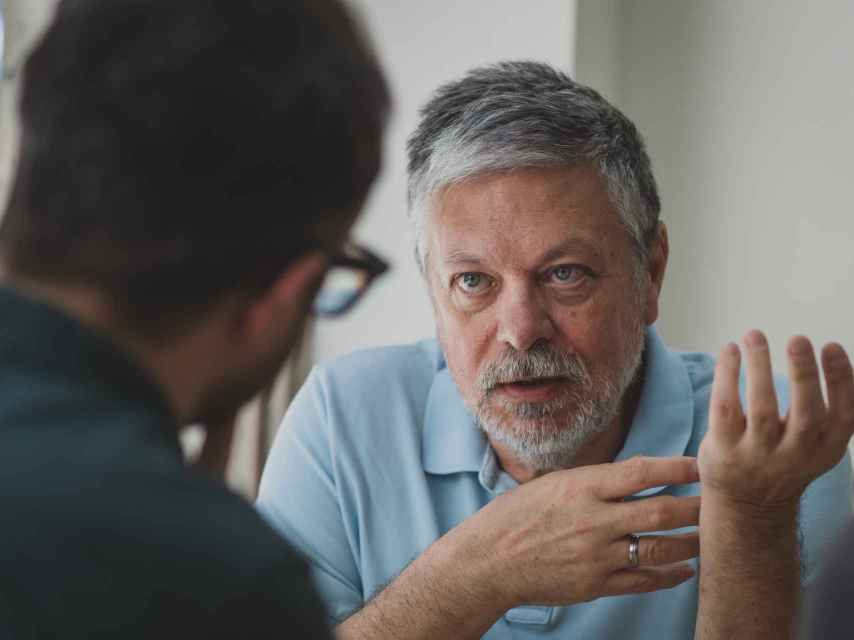
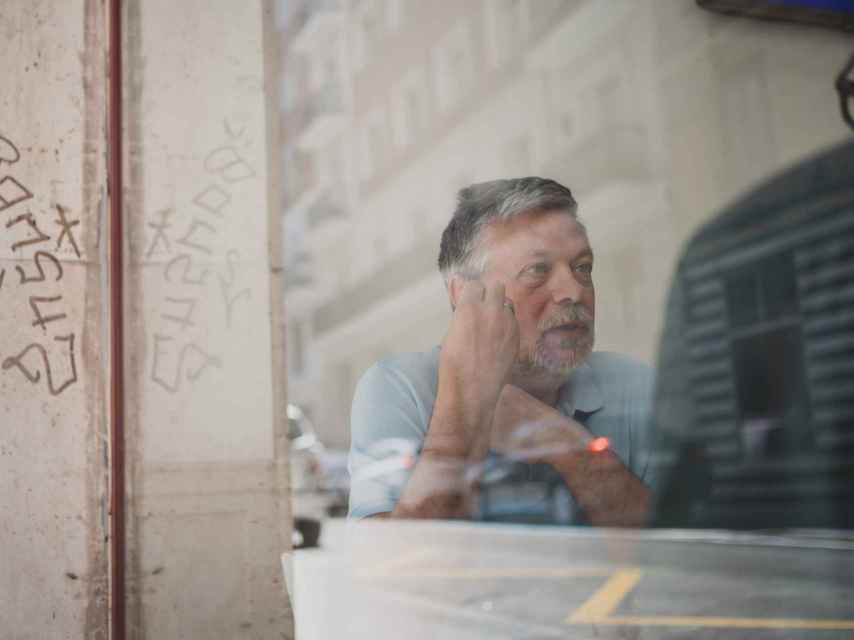
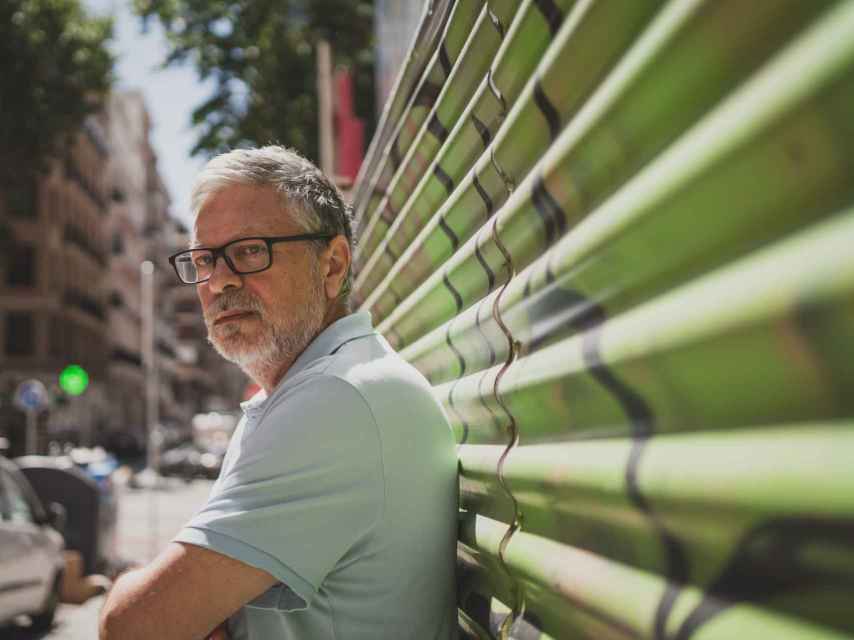
Other Talking about the world interviews:

